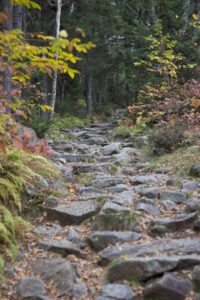We live in a world that rewards the push — hustle harder, dig deeper, stay the course. But what happens after the push? What happens after the marathon, the back-to-back shifts, the emotional stretch of caring for others while your own reserves run dry?
Recovery is rarely celebrated. It’s quieter, slower, and often deeply uncomfortable. And yet, it is in this space — not in the peak performance moments — that real, sustainable transformation is forged.
The Invisible Cost of Overexertion
Pushing our limits isn’t inherently wrong. In fact, it’s often necessary. Growth demands effort. But chronic overexertion — whether physical, emotional, or mental — extracts a cost we can’t always see at first.
It shows up subtly: a nagging fatigue that sleep doesn’t fix, a foggy mind, a sense of being emotionally threadbare. Injuries linger. Motivation wanes. We find ourselves unable to reset, caught in a loop of effort without renewal.
This is the body’s quiet whisper: “I need repair.”
In the language of ancient wisdom, overexertion depletes the foundational energy that sustains life. When we draw too often from our core reserves without nourishing them, we risk long-term imbalance. In modern terms, we might call this burnout. But it’s more than that — it’s a disconnection from the rhythms that keep us whole.
Recovery Is a Discipline
Contrary to popular belief, recovery isn’t the absence of work. It’s a discipline in its own right — a practice of listening, responding, and rebuilding. It requires structure, consistency, and patience.
The real challenge is not just to rest, but to rest well.
To do this, we must create conditions in which the body feels safe to soften, where the nervous system can release its grip and repair the wear of our striving. This might include:
Consistent nourishment: Eating foods that support digestion, regulate inflammation, and rebuild vitality.
Movement that restores: Practices that unwind tension, circulate energy, and realign structure — not simply burn calories.
Breath and awareness: Developing a conscious relationship to the breath to regulate emotional responses and connect to inner stillness.
Reflection: Asking, not what you can do, but what you need.
The Emotional Cost of Discipline
Discipline often conjures images of rigidity and denial. But true discipline — the kind that leads to sustained wellbeing — isn’t punishment. It’s devotion.
It’s the willingness to say no when the world says go. It’s choosing discomfort in the short term for health in the long term. It’s recognizing that joy, creativity, and vitality arise not from constant effort, but from balance.
Yet let’s be honest: this path can feel lonely. Choosing rest over achievement, stillness over stimulation, often means confronting the parts of ourselves that feel unworthy unless we’re doing. And that can hurt.
There’s grief in letting go of the pace we once kept. There’s vulnerability in listening to the body and hearing that it’s not okay. There’s fear in slowing down — because what if everything falls apart?
But over time, with care and commitment, we begin to feel something else emerge: resilience. Not the brittle kind that comes from forcing yourself through pain, but the deep, rooted kind that grows when you recover from it.
A Different Kind of Strength
You don’t have to wait until you’re injured, sick, or broken to begin listening. The body gives clues long before the breakdown. So does the heart.
Healing is not just a phase between injuries or setbacks. It is a state to cultivate — a home you return to again and again.
If you’re in a season of recovery, know this: You are not falling behind. You are not being lazy. You are doing some of the most profound work there is — the work of restoring your foundation so that you can rise again, wiser, steadier, and more whole.
And if you’ve just come through a long stretch of exertion, ask yourself this: Can you honor your body with the same devotion you gave to the mission that taxed it?
Because lasting results don’t come from a single surge of effort. They come from how you care for yourself after the surge.





